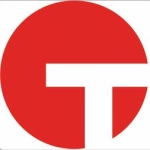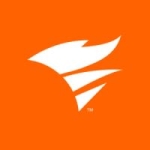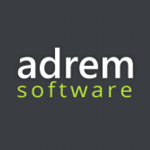What is most valuable?
The most valuable feature is the performance monitoring. This is one single-point dashboard, which presents the health of the database, at a particular point in real time. It helps you see which queries are running, and the top file sessions that are running. That helps you accurately identify what is bogging down the system.
That top session, which is chewing up CPU resources and memory, helps you see if it is doing the right thing, using the right indexes, using the best EXPLAIN PLAN. If everything is all good, maybe that tells you the box’s resources is not enough. However, 90% of the time, there are bad queries, rogue queries; it provides ample opportunities to queue.
Thanks to this tool, it helps us drill down, get to the bottom of the problem really quickly. Quick identification of a problem is key. Once the problem is identified, then you have other tools to figure out how to make this query run fast.
There are nice features like the hash report and AWR codes. At the click of a button, on the fly, you can generate these reports, which tell you exactly at the time of the clicking the health of the database; how well or how bad it is running. That is what the business is looking at from the DB. DB is like a doctor. They want the cure. They want to know what is the problem for the disease. This helps us identify the health of the database in real time, fast.
How has it helped my organization?
The main benefit is the quickness; the speed at which you identify, diagnose and resolve problems. The old-fashioned way depends on the DBA’s manual skills. It would take him forever, if we were to go the legacy route. This is nice, like a MRI scan. That helps. It is very fast; the queries are faster, the work gets done faster, you generate the reports faster, you are able to deliver how well the company's doing faster.
You can talk about the different features in IT, but at the end of the day, what it boils down to, what matters to management when they come into the office is that they want to look at the reports. They want to see how well their business is doing. These tools help make sure these queries are done well, so that you generate more reports, more quickly, so that management knows about the health of their company early and fast. That helps them slice and dice this information, and arrive at meaningful, logical conclusions to how well they want to run their business.
What needs improvement?
As it is, this product has so many features. We have yet to explore its full potential. There is one feature that tells you how long the query has been running. It would be nice if they could introduce a GUI feature in the performance monitoring section that shows when the query will finish. We can see when it started by looking at the session history. People are looking at you to tell them when will it finish. It would be nice if there is a GUI feature that tells you the start and the finish times. That way you can set the right expectations.
What do I think about the stability of the solution?
The product is very stable and doesn't take up a lot of resources. We have seen products that work well in the short-term, but that cause more harm. What was supposed to be a small footprint, ends up chewing up all the box’s resources, whereas that's not the case with this product.
What do I think about the scalability of the solution?
There are times when you have to troubleshoot during the height of a crisis, when the box is already busy, and the chances are you are inflicting more pain. Nonetheless, this product still works very well, despite how busy the box is, because of the small footprint. Meaning, it doesn't take up a lot of resources. With fewer resources, it strives to get the job done.
How are customer service and technical support?
Technical support is excellent. They get back to us really fast, if there is an issue. Also, there are tons of material out there on the Oracle support website. 90% of the time, you can get the answers very simply, without the need to reach a physical person to guide you to resolve your issues.
Which solution did I use previously and why did I switch?
We had other solutions such as Toad and Spotlight, but once we saw this, there was no going back. It was pretty good. It's a one-point destination; one umbrella. It has so much to offer. Basically, if someone were to start using this product, they will not deviate. It has so much potential, honestly.
How was the initial setup?
Initial setup is very straightforward. It is very easy to install and configure. It is also easy to migrate to different platforms. It is easy to fix if it is broken. It's not rocket science. I have seen other products where, once it is broken, it is broken; you have to do it properly from scratch. That's not the case here. With simple fixes, you can be back in business and running.
Which other solutions did I evaluate?
We were considering going with Quest Central and couple of other vendors, but being a big Oracle shop, it made sense. Sticking with one vendor made sense, so that we can get a better offer on the pricing. Considering Oracle is the database, it is no wonder the product has more insight into the database functioning. That's why we chose this solution.
What other advice do I have?
My high rating reflects its ease of use and that it contains a host of features, anything and everything a database administrator would want it to perform; all the way from creating a database to adding space, to performance monitoring, to back up and recovery, to exports and imports, and security. You name it, they have it.
Cloud is the big buzzword. The reason why companies are moving from on-prem to cloud is cost-cutting. IT companies knowingly or unknowingly have spent top dollars on IT, but the thought process is changing. It all boils down to cost-cutting. Basically, the IT companies want to continue to do the same great stuff but with low costs, so that they can pass the benefit to the investors. I would say, cost. At the end of the day, cost is the most important criteria when I am considering working with a vendor. If you can bring down the cost, there is nothing else like that.
I strongly recommend using this product. This is going to make your life easy, so that you can use whatever time you save for better things in life.
Disclosure: My company does not have a business relationship with this vendor other than being a customer.

















